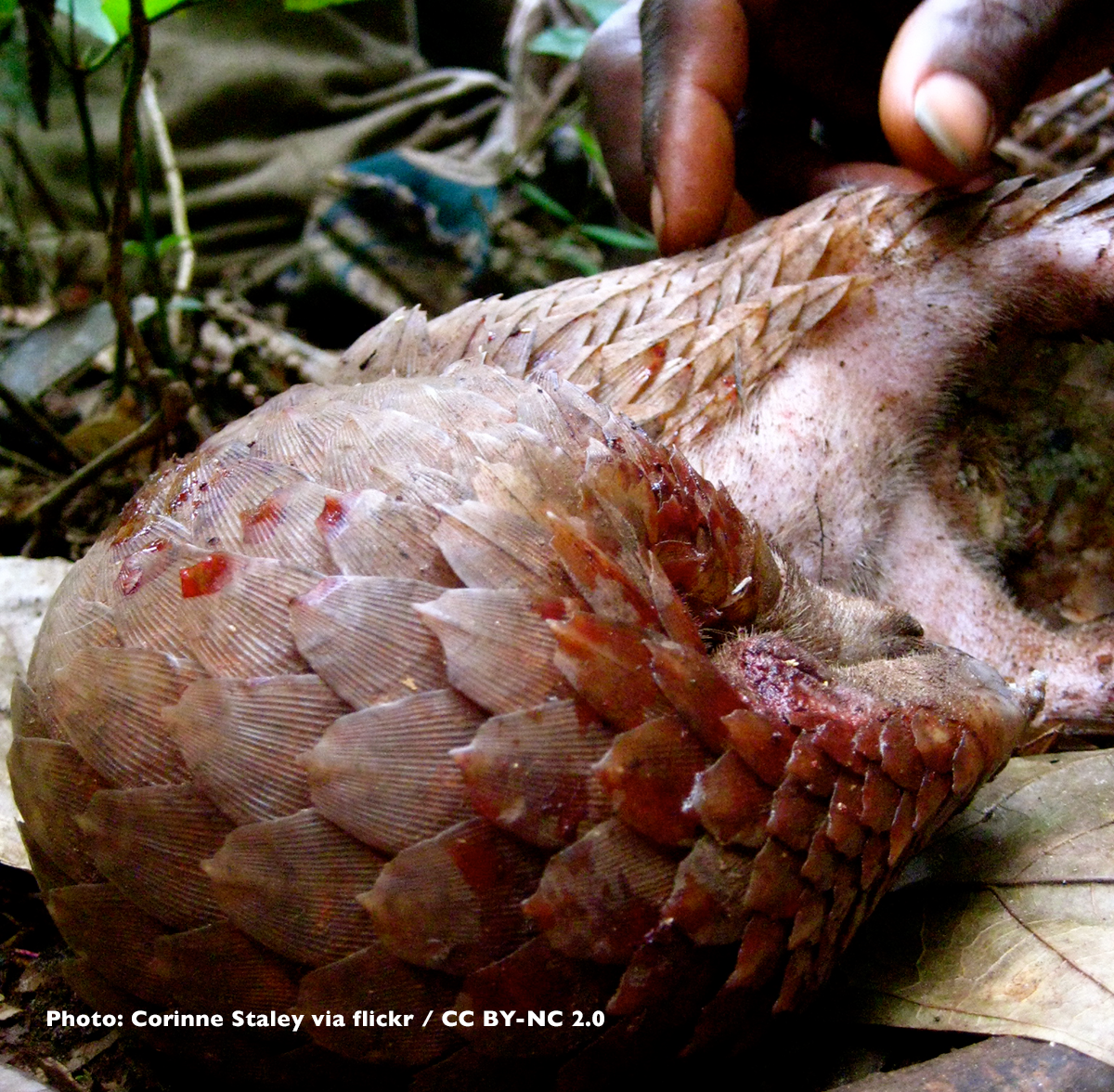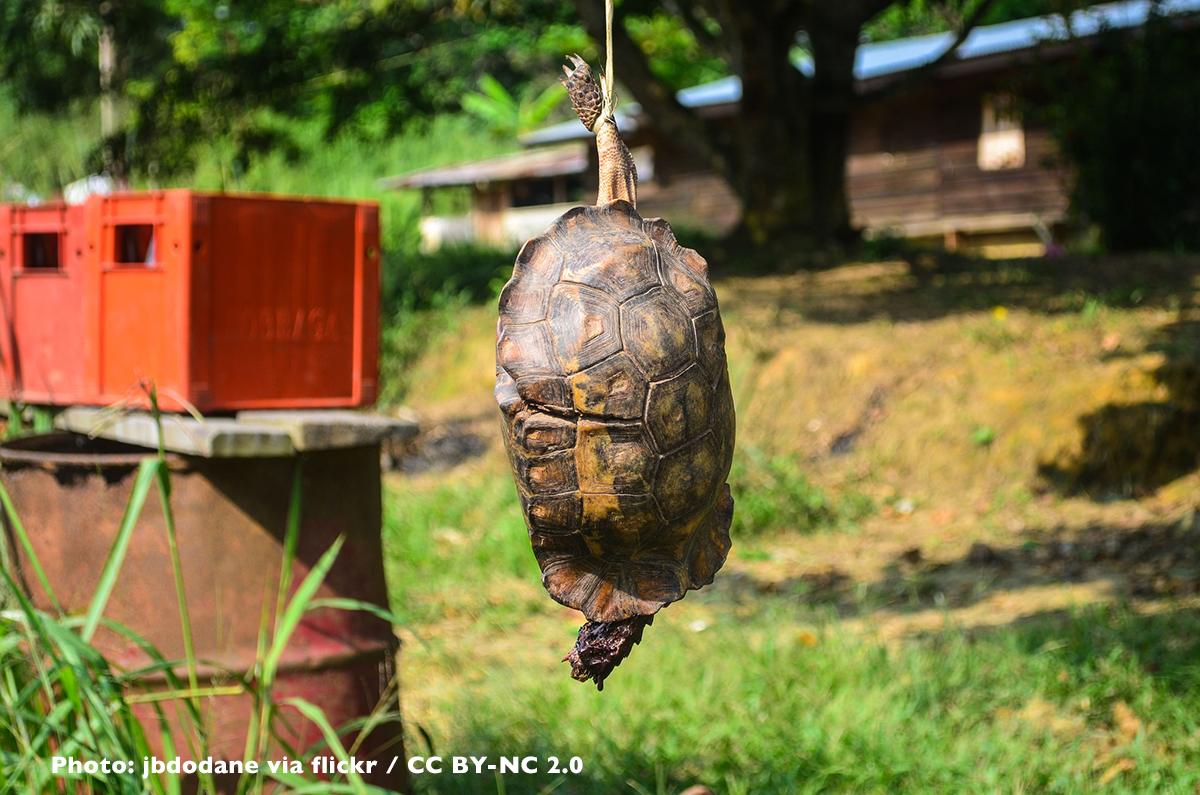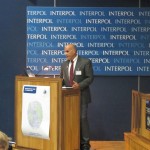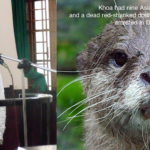
If you are interested in the field of combating wildlife crime, and you haven’t read it already, you need to take a look at one of the recent Global Initiative against Transnational Organized Crime’s researcher’s reports.[i] It addresses the subject of why some local communities (or persons within them) may engage in poaching.
I realize I am biased, because I am a member of the Initiative, but it is regularly producing first-rate examinations of a whole range of organized crime-types. And especially in the field of environmental crime. The recently-published two-part study of rhino poaching and trafficking[ii] is excellent and I particularly welcomed its focus on the abuse of diplomatic privileges. The latter was something I struggled to address, with mixed success, during my days in the CITES Secretariat.
As an aside, I was at an event in England earlier this year which the rhino-related report’s author, Julian Rademeyer, also attended. Over a drink one evening, I made the observation to Julian (which he thankfully took in good spirit, as we have known each other for some time), “If you, a journalist with no law enforcement background or experience, can identify where the shortcomings and gaps are, then why oh why can’t those who, allegedly, have such expertise see them and react?”
But enforcement is not really the topic of my musings today. This is why I again encourage you to read the first-referenced paper.
A great deal is spoken these days about issues that must be addressed alongside the bringing to justice of those committing, controlling, organizing and profiting from wildlife crime. Two of these which probably receive the greatest attention are demand reduction and community engagement. I’ll leave the former aside for the moment, although I have plenty to say on that topic (some other day). Let’s just consider, for now, community engagement, involvement, participation, or whatever phrase may be bandied about.
In the far-off days when I was a detective, I regularly dealt with criminals, albeit often low-level but nonetheless ‘professional’ and ‘full-time’, who viewed themselves as utterly divorced from the rest of society. Whilst they expected me, and my colleagues, to rigidly abide by the law, they saw no reason whatsoever to comply with the norms, rules or legislation that the majority of local residents accepted. For a variety of reasons, they regarded themselves as being hard-done-by, disadvantaged or otherwise cast- or left-aside. Once such attitudes become ingrained, and I have personally seen them pass through three generations of criminals in some families, they are really difficult to alter.
Anyone who studies organized crime in the world today notes that there are networks and groups which have become so established and embedded within some communities that they end up being much more highly regarded than local, provincial or national government. In some cases, this is down to the group itself, its leaders, or high-profile members, acting in a semi-philanthropic manner towards their fellow-residents. Allow me to offer you a simple, but graphic and bizarrely amusing, example of this.
Many years ago, I organized a side-event at a UN Crime Congress which, on that occasion, was held in Bangkok. Late one evening, I left the conference centre, climbed into a taxi, and asked its driver to take me to my hotel. We began to chat and he asked why I was in town. It struck me as rather an odd question, given where he’d just picked me up from, but I told him that I was attending the Crime Congress. Clearly intrigued, he asked why. I explained that I was a UN official and that my field of activity was law enforcement. A scowl began to creep across his face. He then asked how I came to be involved in such work. I informed him that I’d spent over 20 years as a Police officer and now did similar endeavours internationally. The scowl deepened and a lengthy silence ensued.
Deciding that being ejected before reaching my destination seemed a worthwhile risk in order to continue our dialogue, I said his expression indicated to me that he perhaps had no great love for the law enforcement community and encouraged him to tell me why. He asked if I understood how the business of taxi-driving in Bangkok was organized and went on to provide this explanation when I told him that I didn’t.
According to his version, each taxi driver in Bangkok, if they wished to occupy a favourable ‘stance’, had to make two payments. The size of the payments was determined by the location of the stance or taxi rank and the access it might provide to ‘good’ customers. For example, the payments were likely to be highest if a driver wished to position his cab outside one of the city’s premier 5-star hotels or most-visited tourist spots. In comparison, you might pay a pittance to park outside a backpacker’s hostel. Alternatively, you could pay nothing and simply cruise the streets hoping to get flagged down.
I responded that it all seemed logical but I remained puzzled as to whom the payments were made and why two were necessary. The first, he clarified, was to the Royal Thai Police. (I hasten to say here, because I may wish to visit Thailand at some point in the future, that this account describes a scenario of many years ago. I am confident that no such arrangement exists today. Indeed, the driver may have been telling me the most dreadful and scurrilous lies.)
The second payment, he said, was to the Bangkok ‘mafia’. By this stage in the journey, I was so fascinated by the arrangements he was describing that I set aside my interest in learning more about the ‘mafia’ and focussed in on why he presumably objected to paying the Police but seemingly not the mafia. I urged him to tell me more.
“What does the payment to the Police get me?” he responded. “****-all. Other than not being moved on from the stance.” “So what does the mafia payment get you”, I asked. “Oh, that’s completely different”, he answered. “At least twice a year, the mafia organizes a party for taxi drivers. It’s in a good nightclub. The drinks and food are free. All night long. The girls’ services are free. Or the boys, if that’s what you prefer. You spend a great night with your pals, get completely pissed, and shag yourself stupid. I can’t wait for the next one to come around. And, if at any time I get hassled or have trouble with a fare, I call a number and the mafia fixes things.”
If you’ve been a Police officer, you know how hellish a taxi driver’s life can be, so I could see exactly where he was coming from. Before I move on, allow me to encourage you to always try and engage taxi drivers in conversation. They are excellent sources of information and insights into whichever locality you are visiting. Harping back to my Detective-days, some of my best informants drove taxis. Be aware, however, that many Bangkok taxi drivers have (or used to have) ‘binders’ of fully-illustrated information relating to the sexual services available in the city that will not only take your breath away but also make your eyes water.
Is it any wonder, then, that communities housing poachers of elephants and rhinos, narco-traffickers, or those engaged in a wide range of other organized crime-types, may be in no rush to take the side of the ‘guardians of justice’?
And especially if those officials, in enforcement and other government agencies, appear more corrupt and abusive of power than the individuals they categorize as criminals. Spot-the-criminal can be a really taxing game in some places.
The other topic that has begun to strike me, more and more, is how disenfranchised some communities in the developing world must feel. How many situations have occurred where land over which your ancestors grazed their cattle, engaged in subsistence hunting and wood-gathering , or grew crops, has – at a stroke and without consultation – been designated a national park or reserve? But what must be especially galling is surely to live in buffer zones, or even worse within concessions, where you sit and watch persons, often foreigners, engaging in the hunting of species which the authorities tell you are endangered or specially-protected. They do so legally, because they’ve paid a substantial fee. But if you set a snare, to supplement your diet with something other than constant meals of maize or millet, the wrath of anti-poaching personnel will descend upon you. Personnel who often have the appearance of some paramilitary occupying force, dressed in camouflage, armed to the teeth, and oblivious to the daily challenges you must overcome just to exist. There to protect natural resources which your State’s constitution probably says are the property of its citizens, but from which you gain no benefit in the slightest.
You and your family may know the area, and its fauna and flora, in which you live better than the proverbial back of your hand. You ought to be the ideal guide for eco-tourists. But you don’t speak English, French, German or whatever language most potential game-viewers talk. The luxurious lodge and hunting concession operators don’t provide linguistic lessons; they recruit persons with those proficiencies from the capital or major cities of your country. The same places from which they recruit their waiting, bar-keeping, cooking, and housekeeping staff. It is too much trouble to train ‘locals’. (I know this is a generalization that may be completely unfair in some locations but readers also know it to be all too frequently accurate.)

Is it any wonder, therefore, that some communities view poachers as semi-heroes, striking a blow on their behalf against a seemingly uncaring State?
Is it any wonder that youths in such communities view poachers as role models whom they desperately wish to emulate and whose ranks they cannot wait to join? Might this explain why every poacher shot dead in Kruger National Park is replaced in next to no time at all?
The donor community and aid agencies are currently funding some community projects which, to my mind, are bound to fail. For the simple reason that some of the communities at which they are directed utterly detest their government authorities and have no motivation whatsoever to cooperate with them. And, in my opinion, they may be completely justified in doing so: particularly in countries plagued with corruption; where external aid has significant and long-standing histories of misuse and diversion; where racism and bigotry towards ethnic and tribal groups exist; and where the gap between the haves and have-nots is no longer a gap but a chasm. This is also the overly-fertile ground in which the seeds of radicalization grow into terribly and horrendously fruitful terrorism.
Ignoring such realities is like offering alternative, legitimate, livelihoods that in no way match the illicit incomes communities have become used to. It is like saying to them, “Hey, look what we’ve got here. We’re offering you an opportunity to step back down the poverty ladder.” Don’t be surprised if you do not get knocked over in the rush to accept such generosity.
If, as we keep being told, the aim is to combat organized crime involvement in poaching, illicit harvesting, and trafficking in fauna and flora, we need to truly understand organized crime.
Its tentacles reach into every corner. It seeks out and, frequently successfully, exploits each and every opportunity. It does so in ways that are regularly and persistently more imaginative and innovative than our current responses.
Unless this is taken into account, substantially more than it is at present, community engagement will continue to be a feel-good initiative in combating wildlife crime with wholly unrealistic expectations and outcomes.
Aside from any of the above, we also need to recognize that far too many communities around the world exist, as opposed to live, under appalling conditions. The activities I continue to undertake, in my semi-retired and part-time status, are bringing me into contact on too regular a basis with situations that I find frustrating, infuriating, maddening, exasperating and horribly depressing.
I have been incredibly privileged to obtain the helicopter view of international wildlife crime. In doing so, I have seen how the ‘other half’ lives. If there is one message I aim to put across today, it is that we need to more frequently remember that their life is miserably crap.
[i] http://globalinitiative.net/wildlife-crime-why-do-local-communities-poach/
[ii] http://globalinitiative.net/rhino-tipping-point/


![The UN’s Lone Ranger: Combating International Wildlife Crime [Podcast]](https://annamiticus.com/wp-content/uploads/2015/10/BehindTheSchemesEpisode37-500px-150x150.png)

